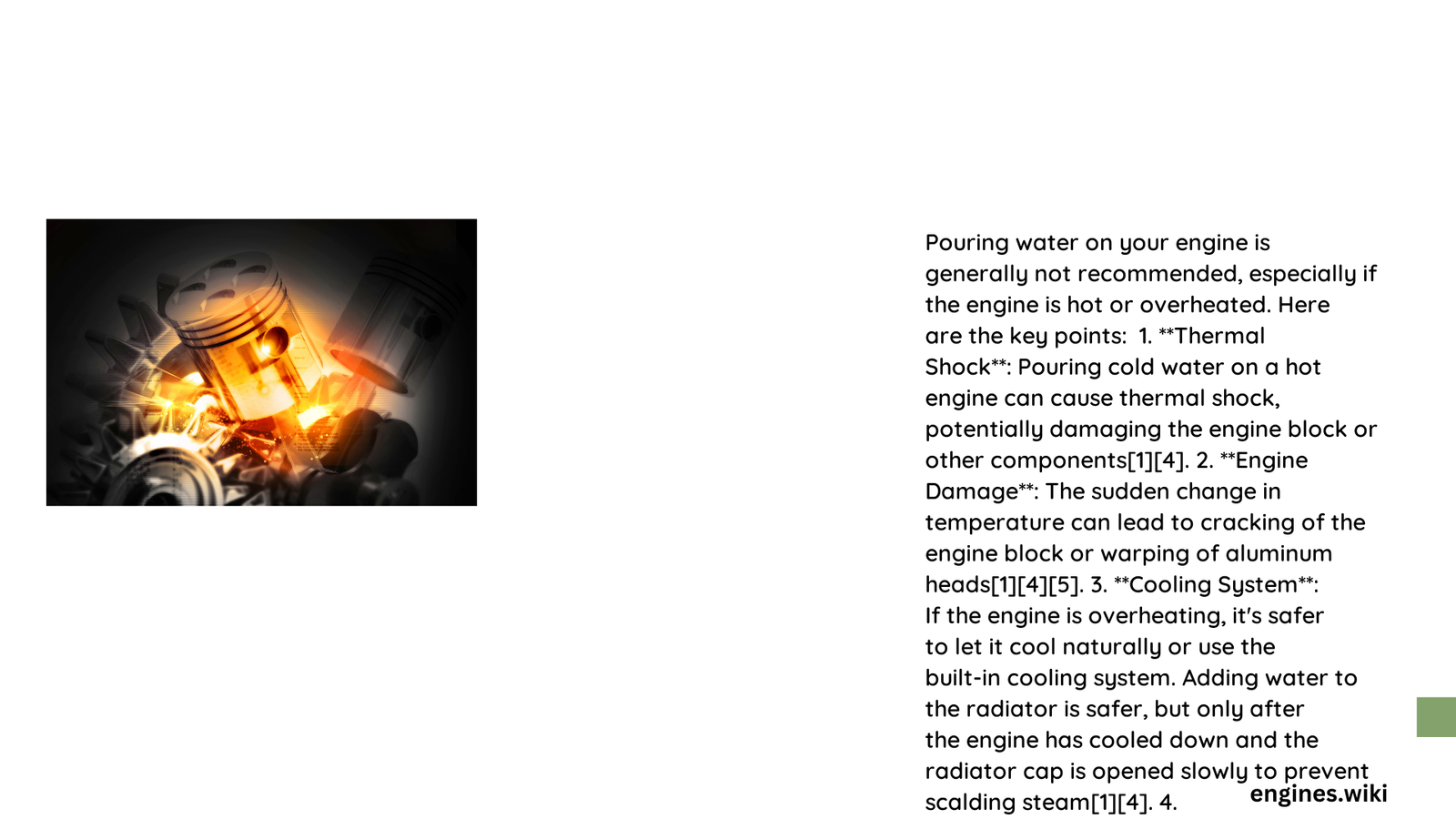Pouring water directly on a vehicle engine is a dangerous practice that can lead to catastrophic mechanical failures. Vehicle engines are complex, precision-engineered systems with numerous sensitive components that can be irreparably damaged by direct water exposure. Understanding the risks and potential consequences is crucial for any vehicle owner who wants to maintain their engine’s performance and longevity.
What Happens When Water Meets a Hot Engine?
Water and hot engines are a dangerous combination that can result in significant mechanical damage. When water contacts a hot engine, several critical problems can occur:
Thermal Shock and Mechanical Stress
| Potential Damage | Immediate Effects | Long-Term Consequences |
|---|---|---|
| Cracked Components | Rapid temperature change | Permanent structural weakness |
| Electrical System Failure | Steam generation | Corrosion and short-circuiting |
| Lubrication Disruption | Potential hydro-locking | Engine component degradation |
Why Should You Never Pour Water Directly on an Engine?
- Hydro-locking Risk
- Water can enter combustion chambers
- Prevents engine rotation
-
Potentially destroys pistons and connecting rods
-
Electrical System Vulnerability
- Water conducts electricity
- Can short-circuit complex electronic systems
-
Expensive computer module replacements
-
Corrosion and Material Degradation
- Metal components susceptible to rust
- Compromises engine structural integrity
- Reduces overall engine performance
Safe Alternatives for Engine Maintenance

Professional Cleaning Methods
Instead of pouring water directly on your engine, consider these safer alternatives:
- Professional Steam Cleaning
- Controlled temperature and pressure
- Specialized equipment
-
Minimal risk of damage
-
Specialized Engine Degreasers
- Designed for automotive use
- Targeted cleaning
- Preserves engine components
When to Seek Professional Help
| Scenario | Recommended Action | Potential Cost |
|---|---|---|
| Visible Engine Grime | Professional detailing | $100-$250 |
| Performance Issues | Comprehensive engine inspection | $150-$500 |
| Accidental Water Exposure | Immediate mechanic consultation | Varies |
Expert Recommendations
Key Takeaways:
– Never pour water directly on a hot or running engine
– Use professional cleaning methods
– Consult automotive professionals for complex maintenance
– Prioritize preventative maintenance
Technical Insights
Modern engines are intricate systems with:
– Precision-engineered components
– Complex electrical systems
– Sensitive lubrication mechanisms
Water introduction can compromise these delicate systems, leading to expensive repairs.
Conclusion
Understanding the risks associated with pouring water on an engine is crucial for responsible vehicle maintenance. Always prioritize professional methods and consult experts when uncertain about engine care.
